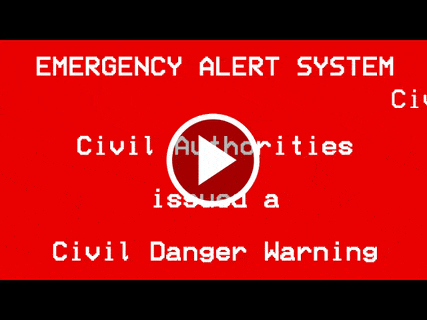Stay informed and uncover the truth with us—they’ve been lying to us for too long. Join our, Telegram Channel. Be part of the revelation.
When the energy crisis strikes, it won’t be a matter of if, but when. The world teeters on the edge, and those who are unprepared will find themselves at the mercy of chaos. Here’s the unvarnished truth: your survival depends on how well you manage your resources and plan for the inevitable. Let’s get into the gritty details and lay out the plan to keep you and your family alive when the lights go out for good.
1. Stock Up on Non-Perishable Foods
You must secure a stockpile of non-perishable foods now. We’re talking about canned goods, dried beans, rice, and pasta. Forget fresh food – in a crisis, it’s a luxury you can’t afford. These staples have long shelf lives and are easy to store. Make it a habit to rotate your stock regularly. This isn’t about convenience; it’s about survival.
2. Use Alternative Cooking Methods
When the power grid fails, your microwave and electric stove will become useless relics. Invest in a camping stove, solar oven, or a rocket stove now. These tools will allow you to prepare meals without relying on electricity or gas. Ensure you have a plentiful supply of fuel or access to sunlight to keep these cooking methods functional.

3. Store Water
Water is non-negotiable. Store at least one gallon per person per day for drinking and sanitation. Use large, food-grade containers and keep them in a cool, dark place. This is your lifeline. Regularly check and replace stored water to keep it fresh. Don’t wait until the taps run dry to start thinking about this.
4. Install Solar Panels
Solar panels are your ticket to a semblance of normalcy during an energy crisis. These devices convert sunlight into electricity, reducing your dependence on the crumbling grid. Pair them with a battery storage system to keep your home powered during cloudy days or nighttime. The upfront cost is worth the security it brings.
5. Use Energy-Efficient Appliances
Your old appliances are energy vampires. Replace them with energy-efficient models now. Look for appliances with the ENERGY STAR label. These aren’t just fancy stickers; they signify adherence to strict energy efficiency guidelines. In a crisis, every watt counts. Don’t waste them on outdated, power-hungry machines.
SCARE EVENT ALERT: Deep State’s Martial Law Rollout Imminent – CIA and FBI to Begin Implementation as Soon as Next Week!
6. Create an Emergency Kit
This isn’t a luxury; it’s a necessity. Your emergency kit should include essentials like flashlights, batteries, a first-aid kit, and a manual can opener. Don’t forget a multi-tool and necessary medications. These items will be the difference between life and death when the infrastructure you rely on collapses.
7. Plan for Heating and Cooling
Extreme temperatures can be killers. Use thermal blankets, wear layers of clothing, and insulate your home to retain heat during winter. In summer, use fans, stay hydrated, and seek shade. A wood stove or portable heater isn’t just a comfort; it’s a necessity for survival during cold months.
8. Grow Your Own Food
Dependency on external food supplies is a vulnerability. Start a garden with easy-to-grow vegetables and fruits. This isn’t a hobby; it’s a survival strategy. Learn about preserving food through canning, drying, or fermenting to extend your harvest. Your garden could become your most valuable asset.
9. Use Hand Tools
Electric tools will be worthless without power. Stock up on hand tools like manual drills, saws, and wrenches. These will be essential for performing necessary tasks when the grid is down. Keep your tools in good condition and learn basic maintenance skills. They need to last.
10. Learn Basic Skills
In a crisis, your skills will be as valuable as your stockpile. Basic skills like sewing, carpentry, and first aid can be lifesavers. Take the time to learn and practice these skills regularly. Consider taking a survival course to enhance your preparedness. Self-sufficiency isn’t optional; it’s critical.

11. Create a Communication Plan
Communication can be the difference between safety and disaster. Develop a communication plan that includes backup methods like walkie-talkies or a ham radio. Ensure everyone knows the plan and how to use the equipment. Establish a meeting point or safe location for your family to gather if separated.
12. Conserve Energy
Every bit of energy saved is another step towards survival. Turn off lights when not in use, unplug devices, and use energy-efficient light bulbs. Small changes can make a significant difference. Implement a schedule for using high-energy appliances during off-peak hours. Be smart with your consumption.
13. Secure Your Home
Security will be a major concern. Strengthen your home by installing sturdy locks, reinforcing doors and windows, and setting up a security system. Protect your family and belongings from those who might exploit the crisis. Forming a neighborhood watch group can increase community security.
Breaking News: The IMF and DCMA Announce the Quantum Financial System—A New Global Economic Era Begins with the Revolutionary Global Currency Reset (RV/GCR)!
14. Stay Informed
Information is power. Use a battery-powered or hand-crank radio to stay informed if the power goes out. Knowing what’s happening will help you make better decisions. Follow reliable sources and local authorities for accurate and timely information. Ignorance isn’t bliss; it’s dangerous.
15. Build a Community Network
Isolation is a threat. A strong community can provide support during tough times. Connect with neighbors and local groups to share resources, skills, and information. Working together can make it easier to handle an energy crisis. Organize community meetings to discuss preparedness plans and share valuable tips.
In the face of societal collapse, every decision counts. Choosing a refuge involves weighing the pros and cons of each location against your personal preparedness goals and abilities. Whether you seek the solitude of the desert or the protective heights of the mountains, the key is finding a place that offers safety and the opportunity for growth and renewal.
The time to act is now. Don’t wait for the crisis to catch you off guard. Prepare, plan, and protect your future. Your survival, and that of your loved ones, depends on it.





